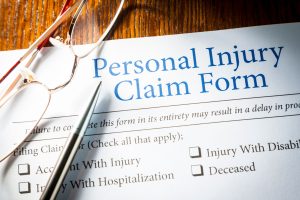The vast majority of successful Palm Beach personal injury cases end in a settlement, as opposed to a trial. Trials are time-consuming, expensive, and sometimes traumatic for plaintiffs and their loved ones. But how are these settlements actually paid out? 
Let’s start with the fact that if you hire an experienced injury attorney, you might not even need to file a lawsuit. Settlements can be reached by mutual agreement at any time – whether there’s a lawsuit or not.
Let the Negotiations Begin
You will probably need to submit a claim to the other party, but that’s not the same as a formal lawsuit. Skilled attorneys can sometimes negotiate favorable pretrial settlements within just a few weeks – possibly even days – without every stepping foot in a courtroom.
If those negotiations are failing and the defendant is refusing to pay you fair compensation, then it’s time to file a lawsuit. Under Florida’s new statute of limitations outlined in F.S. 95.11, you have a 2-year deadline in which to file your case. (Up until this March, it was 4 years.)
That said, settlement negotiations can continue all the way up to trial – and even at any point prior to a verdict. Ideally though, they’ll conclude sooner than later and in your favor.
Although the Palm Beach personal injury claim is technically against the individual who was allegedly negligent in causing the harm, negotiations typically involve insurance companies and their attorneys. That’s because it’s probably ultimately going to be the insurer who pays out the claim.
But even once you reach a settlement, the insurer isn’t automatically going to just cut you a check. The insurer is going to want to protect themselves and their client from any future claims of liability. Before paying up, the insurer will want you to sign a final release. It’s really important that you read over the terms of this release before signing anything. These documents can contain language that can come back to haunt you – particularly if you have latent injuries OR there are other defendants from whom you might still be seeking accountability. The final release stipulates that you forever waive your right to pursue this case in exchange for the agreed-upon payout. It’s not uncommon for these releases to include language that you agree to forfeit your right to make future claims for this incident against any party. If there are other defendants with cases still pending, you really must be careful about this.
Liens & Bills to Be Paid
Once the release has been signed, the insurer will cut the check – likely delivering it to your attorney. There are probably going to be some liens and bills you’ll have to take care of before you get your money. The attorney will deposit your check into a trust account. This ensures your settlement money isn’t commingled with the law firm’s funds. From there, the attorney can organize payment of your outstanding bills and liens.
If other entities paid out some of your expenses while the settlement was pending, they will likely assert subrogation rights to any settlement you’re awarded. That means you have to pay them back for initially footing the bill. This allows the defendant to be held financially accountable for their negligence, but avoids a double pay-out to the injured person.
If you received compensation for medical bills but some of those expenses were initially covered by your health insurance provider, you may need to repay them for those costs. Same with Medicaid and Medicare. If the bills were not paid but the Palm Beach personal injury settlement covered medical expenses in the accident case, the healthcare provider(s) who treated you is owed payment from your settlement funds.
Your car insurance company may also have the right to impose a lien on your settlement funds. In particular, they’ll be looking to collect on any no-fault personal injury protection (PIP) coverage that pays for 90 percent of your lost wages and medical bills after a crash – up to $10,000.
And then there will be attorney fees. There are some cases in which defendants are ordered to pay the plaintiff’s attorney’s fees separate from the damage award. That’s not likely to be the case with a settlement. Palm Beach personal injury lawyers lay out their contingency fee structure upfront – and aren’t paid for their work unless/until you win. Their payment will come as a percentage of the total settlement amount – usually somewhere around one-third.
Once all bills and liens are paid out, then your attorney will write you a check for the remaining amount. This will be less than the total amount of your settlement, as your liens and bills have been deducted. Once you receive that check, the case is over and you are free to turn the page and move on to the next chapter of your life.
Contact the South Florida personal injury attorneys at Halberg & Fogg PLLC by calling toll-free at 1-877-425-2374. Serving West Palm Beach, Miami, Tampa, Orlando and Fort Myers/ Naples. There is no fee unless you win.
Additional Resources:
F.S. 95.11, Florida Statutes of Limitations
More Blog Entries:
“How Much is My South Florida Injury Case Worth?” Palm Beach Personal Injury Lawyers Offer Insight, May 30, 2023, West Palm Beach Injury Lawyer Blog
 South Florida Injury Lawyer Blog
South Florida Injury Lawyer Blog

